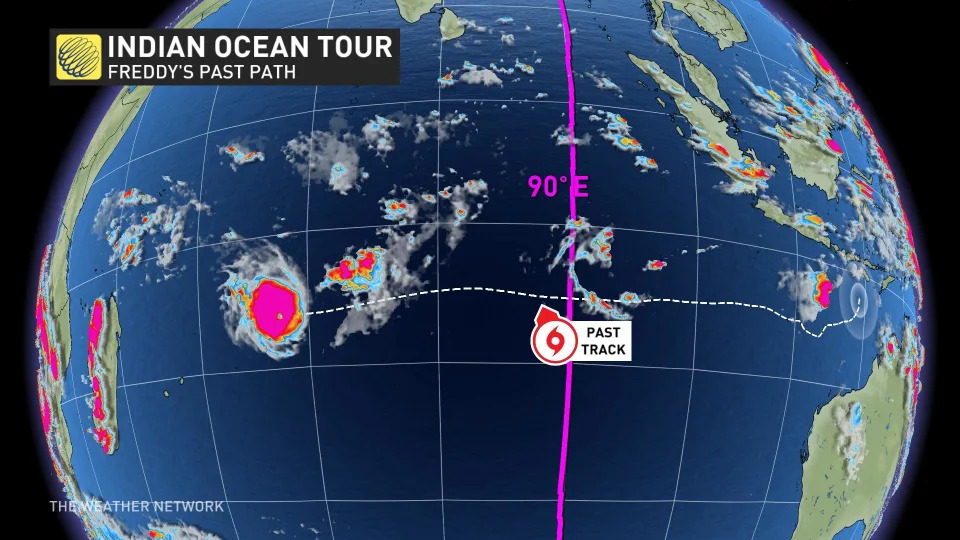Very rare, long lived tropical storm may break records in the coming days
Tyler Hamilton and Rachel Modestino
Sat, February 18, 2023

Rare cyclone with track the size of Canada just won't quit making news
The extremely rare and long-lived Cyclone Freddy continues to churn in the Indian Ocean.
Its powerhouse strength and expansive track covers Canada's entire width, potentially up to 8,000 kilometres long. The storm may also break cyclone energy records in the coming days.
SEE ALSO: Tropical cyclones decreased last century as global warming sped up
Tropical Storm Freddy was just shy of 2023’s first Category 5 storm on Friday and is expected to sustain Category 3 status through Monday. It won't be until Freddy travels farther west that it moves into a less favourable environment, with strength anticipated to diminish to Category 1, before making landfall late Tuesday.

The Eye of Freddie was passed by the International Space Station
Life-threatening surf and surge are forecast, along with rainfall amounts over 300 mm. Madagascar, a country with a population of more than 30 million, is susceptible to many hazards and has one of the highest cyclone risks in Africa. Wind damage, flooding complications from rapid changes in topography and storm surge threats are all elevated with Cyclone Freddy.
Freddy aims to break cyclone energy readings before making devastating landfall Tuesday.
How much energy is released by an average hurricane?
Hurricanes extract energy from warm ocean temperatures and release it through condensation and thunderstorm activity around the eye. The kinetic energy of the wind energy, although less, is still immense. The average wind energy generated by a hurricane is 1.5 trillion watts per day -- enough power generation to cover half the world’s electrical energy production.

FreddeyTracj
Cyclone Freddy developed on Feb. 5, so over the past two weeks it has generated a high accumulated cyclone energy (ACE) score.
By Tuesday, the cyclone will have emitted more energy than the current Southern Hemisphere record-holder, Fantala, which had a 17-day lifespan in the Indian Ocean.
Cyclone Freddy also developed Longitude-90 degrees east, and with its impacts to the Madagascar forecast, it is a highly unusual feat.
Thumbnail courtesy of Joint Typhoon Warning Center (JTWC/SATOPS).
No comments:
Post a Comment